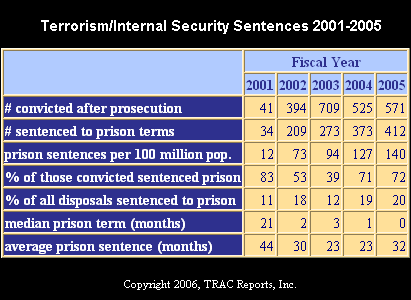Mighty Morphin' Power Preznit
This fabulous piece of artwork was generated by my friend Doug Shaw. Click on the picture to see it change back and forth:


extremely moderate


A less-recent but more complete and still-relevant analysis of post-9/11 terrorism enforcement can be found in this TRAC Terrorism Report.
SEATTLE, WA - A federal court has ruled in favor of a widely recognized researcher seeking detailed statistics from the Internal Revenue Service (IRS) about how the agency enforces the nation's tax laws. Judge Marsha Pechman of the U.S. District Court for the Western District of Washington ordered the IRS to turn over statistical data to Susan B. Long, a professor at Syracuse University and co-director of the non-profit research organization Transactional Records Access Clearinghouse (TRAC).
Pechman ordered production of the requested reports within 14 days, placing the IRS under the same compliance deadline (April 17) that the rest of the nation faces for tax returns. The court also ruled that Long is entitled to an award of attorneys' fees for enforcing the order.
(1) the public benefit from disclosure, (2) any commercial benefit to the plaintiff resulting from the disclosure, (3) the nature of the plaintiff's interest in the disclosed records, and (4) whether the government?s withholding of the records had a reasonable basis in law.
"The court's decision not only vindicates the public's right to information, but also serves as a powerful reminder to agencies that the courts can hold them accountable and that they act at their peril if they disregard court orders."